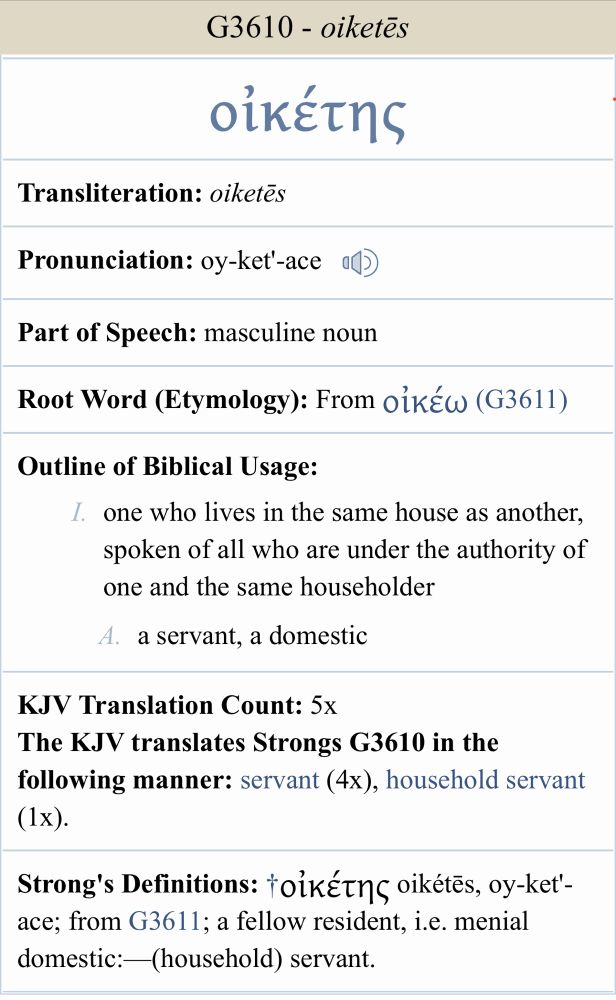The English is updated to reflect changes in usage because English is a living language. The original Hebrew, Greek, Aramaic remain the same as they were at the time they were written.
Replies
That's fair.
Exodus 21:16 shows that the American model of slavery - kidnapping from native land,possessing or selling - was punishable by death in the Law. Your examples were letters written to a Hebrew audience living under Roman occupation, so they had little or no control of social norms.
I was merely enquiring as to the origins of the NIV, and pointing out that the KJB used a different term - servant rather than slave.
Both KJV and NIV translate from the same Greek sources. Paul in Ephesians and Colossians uses ‘doulos’’; Peter uses ‘oiketes’. Both words can mean ‘slave’ or ‘servant’, but Peter’s choice leans toward ‘servant’. Paul & Peter were Jewish; their audiences were mixed as Christianity had spread.
Interesting. Translations will always be subjective and vary according to your chosen audience, and your own societal and political bents. (etc) It's unavoidable.
Translations are subject to rigorous review standards. There are some English transliterations that are nonsense,though.

